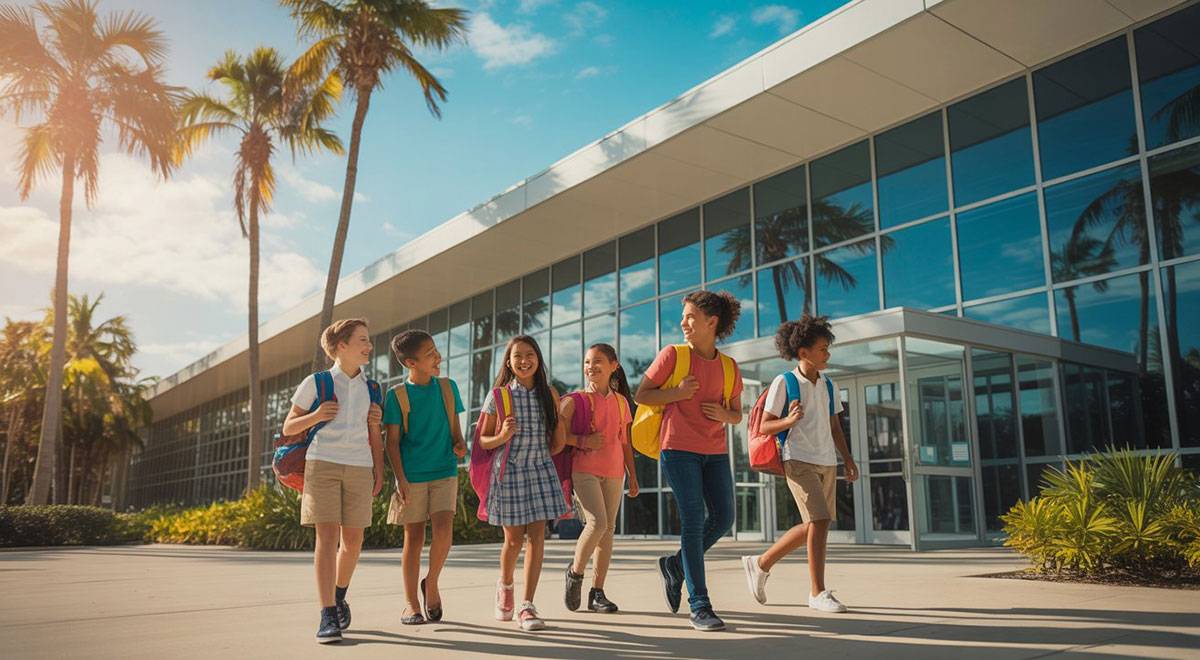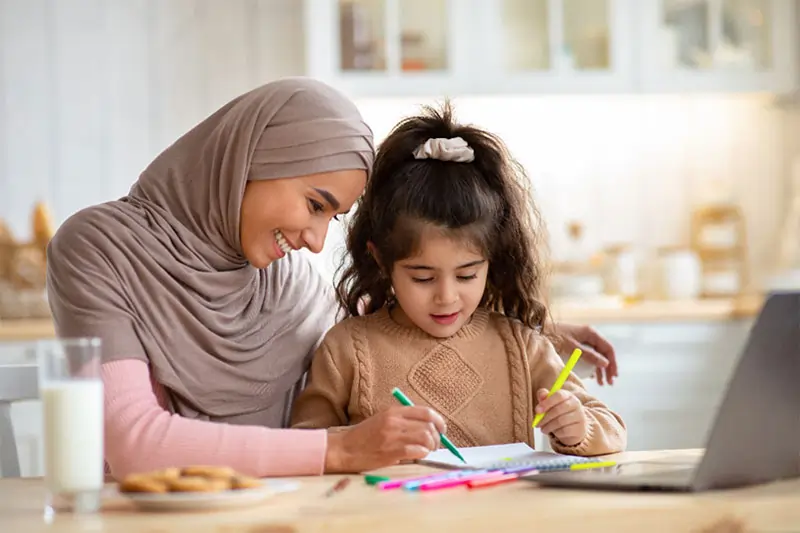Florida Schools: Complete Guide to Schools and Educational Programs
As a parent, one of the most essential things you can do is pick the correct school for your child. Florida has a lot of great choices when it comes to education, including traditional public schools, innovative charter programs, and private schools. The Sunshine State is making great progress in educational excellence, with 71% of graded schools getting an A or B in 2025, up from 64% in 2024. This complete guide will help you select the right Florida school for your family.
Introduction – A Look at Florida’s Schools
The education system in Florida has changed a lot in the last ten years. The state is now a national pioneer in new ways of teaching, giving families more options than ever before. In 2025, the number of elementary schools that got an A went up by 4 percentage points, the number of middle schools that got an A went up by 9 percentage points, and the number of high schools that got an A went up by 10 percentage points. This shows that all grade levels are getting better.
The Florida Education Finance Program (FEFP) is what runs the state’s schools. It gives money to schools based on how many students they have and what their individual educational needs are. This system makes sure that resources accompany children, no matter if they go to a regular public school, a charter school, or use a scholarship program to pay for private school.
Florida’s education system is different from others because it puts a lot of emphasis on parental choice and school accountability. An A-F grading system is used by the state to rate schools based on how well their students do, how much they learn, and how ready they are for college. For the 2024-25 school year, 28 school districts scored an A, 31 got a B, eight got a C, and none got a D or F. This is the best statewide educational performance ever.
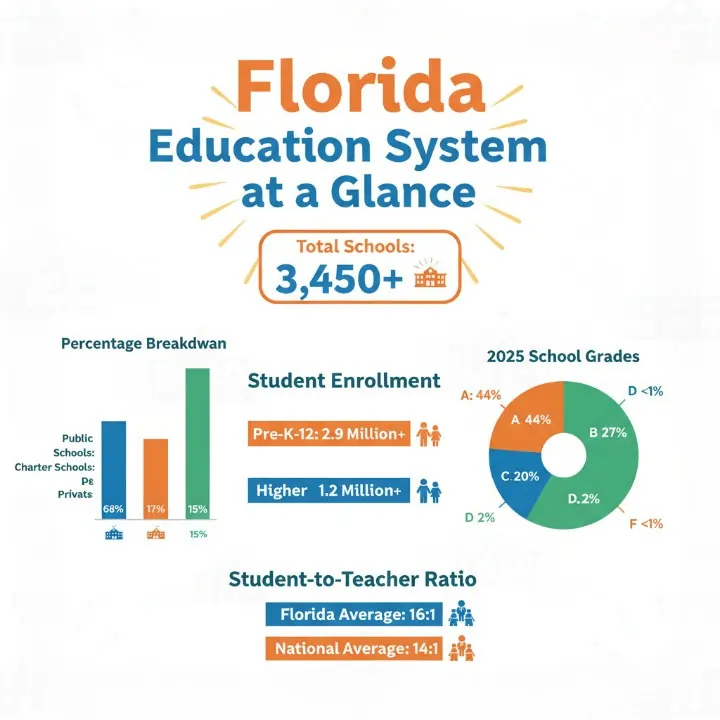
Florida is dedicated to educational success in more than just traditional academics. The state has put in place new initiatives including progress monitoring systems that let instructors and parents keep an eye on how well their students are doing all year instead of just at the end of the year. This proactive method helps find learning gaps early and gives immediate help.
Schools that are public, private, and charter
To make a smart choice concerning your child’s education, you need to know the differences between different types of schools. Each decision has its own pros and cons, and the best one for your family depends on your requirements, values, and situation.
Schools in the Public Sector
The majority of students in Florida still go to traditional public schools, which are the backbone of the state’s education system. Taxpayers pay for these schools completely, and they must take in all children who live within their attendance borders.
Main Features:
- No tuition fees- for any student
- Must follow the state’s rules for curriculum and testing
- Under federal law, they must offer special education services
- Transportation is usually supplied
- Governed by school boards that are elected by the people to make sure everyone has a say
- Teachers need to have at least a bachelor’s degree and be certified by the state
Public schools have a lot of different programs, such as special education, English language learning, gifted programs, and a lot of extracurricular activities. They have to be open about their finances, which means having public meetings and publishing detailed financial reports.
Charter Schools
As of 2024-25, there are more than 732 charter schools in Florida. These are public schools that parents can choose to send their kids to. These schools are more flexible than regular public schools, but they still don’t charge tuition and get their money from the government
Important Things:
- No tuition fees—paid for with taxpayer money
- More flexibility in the curriculum, which lets teachers use new ways to educate
- Usually, performance-based contracts (charters) continue for five years.
- Governance that is separate through their own boards
- Can focus on certain topics like STEM, the arts, or language immersion
- Admission is often via lottery when there are more people who want to get in than there are spots available
Seventy-seven percent of Florida charter schools get A or B grades, showing that they work well in many areas. Charter schools are great at using modern teaching methods including individualized instruction, project-based learning, and technology in the classroom. But it’s crucial to remember that charter schools may not have as many resources for special education as traditional public schools, and they may not offer the same range of programs. Parents should look into each charter school very carefully to be sure it can satisfy their child’s needs.
Private Schools
Florida’s private schools are not part of the public school system. They mostly get their money from tuition and private donations. These schools have the most freedom when it comes to hiring, designing their own curriculum, and setting their own rules
Important Features:
- Tuition-based, but there are scholarships available through a number of state programs can include religious teaching and education based on principles
- Selective admission processes could involve tests and interviews for new students
- Fewer students in each class on average
- More freedom in the curriculum and how to teach it
- Not required to give state standardized tests
The Florida Tax Credit Scholarship, Family Empowerment Scholarship, and Hope Scholarship programs are just a few of the scholarship programs that Florida offers to help families that might not be able to pay for private school.
| Feature | Public Schools | Charter Schools | Private Schools |
| Cost | Free | Free | Tuition (scholarships available) |
| Admission | Automatic (by zone) | Lottery/First-come | Selective/Application |
| Curriculum | State-mandated | Flexible within guidelines | Fully independent |
| Religious Education | Not permitted | Not permitted | Permitted |
| Special Education | Comprehensive services required | Basic services required | Varies by school |
| Transportation | Usually provided | Sometimes provided | Usually not provided |
| Teacher Certification | State-certified required | State-certified required | Not always required |
| Class Size | State maximums apply | Average at school level | Varies, often smaller |
| Accountability | School board oversight | Charter sponsor oversight | Private board |
Top Schools in Miami, Orlando, and Tampa, Three Major Cities
Some of the best schools in Florida are in the state’s big cities. Here’s a closer look at the best schools in each area.
Miami-Dade County
Miami-Dade is Florida’s biggest school system, with more than 350,000 students and 550 schools. It has a lot of different schools and some really great ones.
Best Schools:
The U.S. says that Doral Academy of Technology is the finest public middle school in Florida. News & World Report, which sets the standard for STEM education in the state. Here are some other great schools in the Miami area:
- School for Advanced Studies (SAS) – Students can get an Associate Degree in the Arts after they finish
- Design and Architecture Senior High School: A school that focuses on creative fields
- Terra Environmental Research Institute — Focuses on environmental science
- Jose Marti MAST 6-12 Academy: It is a magnet school for science and technology.
- Marine Academy of Science and Technology – A school with a unique focus on the sea
Miami-Dade schools benefit from the area’s cultural diversity by offering strong dual-language programs and a global view. The fact that the district is close to Latin America gives students who are interested in international business, languages, and cultural studies exceptional chances.
Orlando and the rest of Central Florida
The Greater Orlando area, which includes the counties of Orange, Seminole, and Osceola, has become a major center for education. Orange and Seminole County School Districts both got A marks, but Osceola kept its B grade.
Best Schools:
Orlando Gifted Academy is one of the best middle schools in Florida, and it offers great chances for students who are ahead of their peers. Other important schools are:
- Winter Park High School — Has a lot of Advanced Placement classes
- Timber Creek High School– has good graduation rates and academic offerings.
- Orlando Science Middle High Charter: A school for advanced academics
- University High School—Focus on getting ready for college
- Hagerty High School: It has a lot of different programs and a good athletic department.
The student-to-teacher ratio in Seminole County schools is an amazing 14:1, which lets teachers give each pupil more attention. Because the area is close to theme parks, aerospace companies, and the University of Central Florida, it offers unique chances to explore careers and do internships.
Tampa Bay Area
There are a lot of high-performing districts in the Tampa Bay area. For the second year in a row, Pinellas County Schools earned an A, with 65 A schools in the district.
Best Schools:
- Plant High School is Tampa’s best high school and has a famous football team.
- Newsome High School has a 99% graduation rate and a full range of academic subjects.
- Robinson High School – A great International Baccalaureate curriculum
- Chamberlain High School has great offerings in the performing arts.
- Academy of the Holy Names (Private) is a college preparatory school for girls.
For the 22nd year in a row, Sarasota County Schools got an A.95% of the schools in the system got either an A or a B, making it one of the best-performing districts in the state. The Tampa Bay area has a lot of different types of schools, from regular public schools to magnet programs that focus on vocations in medical, engineering, and the arts.
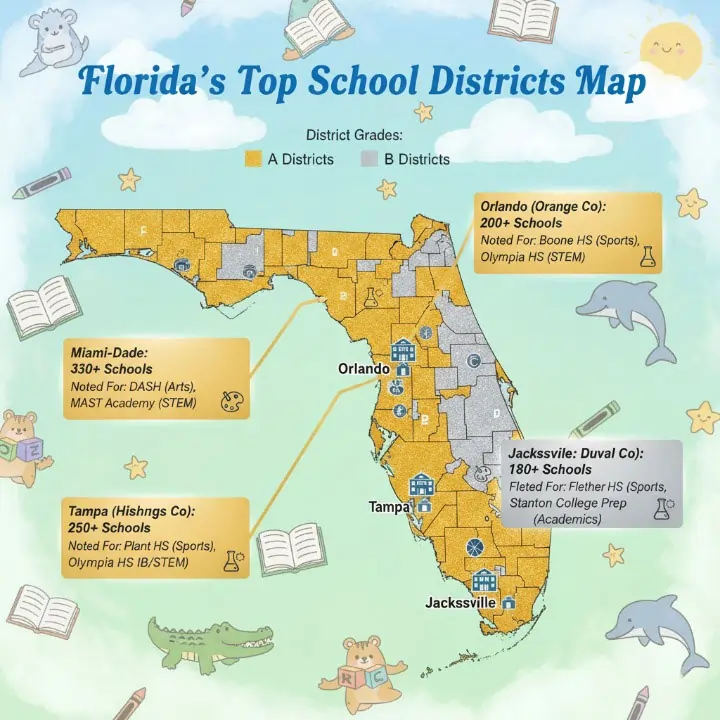
Unique Programs and Activities Outside of School
Florida schools provide a lot more than just basic academics. They have a lot of programs that help kids find their interests, become leaders, and be ready for their future employment.
Programs for Academic Enrichment
Advanced Placement (AP) and Dual Enrollment: Students in Florida have a lot of opportunities to take college-level classes while they’re still in high school. AP classes and tests are hard, but they let kids earn college credit. Dual enrollment programs work with Florida’s state colleges and universities to let students earn both high school and college credit at the same time, usually at no cost to their families.
International Baccalaureate (IB): The IB curriculum is well-known around the world and is offered at many Florida schools. It focuses on critical thinking, being open-minded to other cultures, and getting a well-rounded education in many subjects. You can find IB programs in elementary, middle, and high school.
Advanced International Certificate of Education (AICE): This program at Cambridge University is another method to be ready for college and earn college credit. Florida accepts AICE degrees for eligibility for Bright Futures scholarships.
Programs for Gifted and Talented Kids: Florida requires that gifted students be identified and given assistance. This makes sure that advanced learners get the right level of challenge in their classes and chances to move ahead.
Career and Technical Education (CTE): Florida’s CTE programs give students the skills they need for high-demand jobs through hands-on training and industry certifications. Students can look for jobs in:
- Healthcare: Nursing, helping with dental work, and medical technologies
- Information Technology: programming, cybersecurity, and managing networks
- Engineering and Manufacturing: CAD design, welding, and robotics
- Hospitality and Tourism: cooking, running a hotel
- Agriculture and Environmental Science: Veterinary care and eco-friendly farming
- Business and Finance: Marketing, accounting, and starting a business
A lot of CTE programs work with businesses in the area to offer internships and apprenticeships that give students real-world experience before they graduate.
Arts and Sports
Programs in the Fine Arts: Florida schools are great at music, drama, dance, and the visual arts. Dreyfoos School of the Arts in West Palm Beach and Alexander W. Dreyfoos Jr. are two schools that are similar. The School of the Arts gives students pre-professional training in a number of artistic fields. Many school districts have specific arts magnets and full programs that help kids develop their creative skills.
Sports: Florida’s nice weather makes it possible for sports programs to run all year. High school sports are quite competitive, and many of them lead to college sports. Some of the most popular sports are soccer, football, basketball, baseball, swimming, track & field, and lacrosse.
Clubs and Groups: Florida schools have a lot of ways for students to get involved, from robotics teams and debate clubs to environmental groups and student government. Many schools take part in competitions at the state and national levels. These tournaments provide kids a chance to show off their skills and meet other students who are interested in the same things.
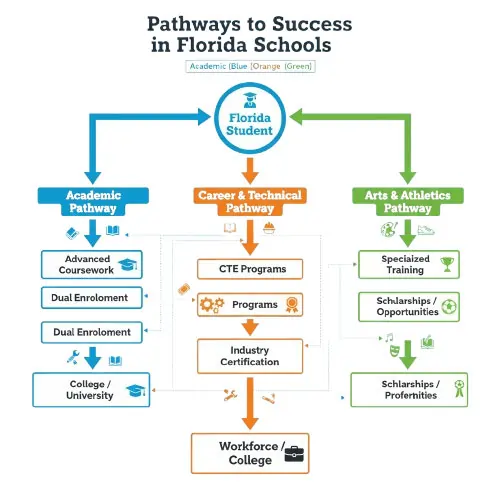
Help and special education services
Florida is proud of how much it cares about students with disabilities and special needs. Public schools have to give:
- Individualized Education Programs (IEPs) made for each student
- 504 Plans for students who need help
- Therapy for speech and language
- Therapy for work and physical activity
- Services to help with behavior
- Technology that helps
- Planning for the future after high school
Advice for Parents Choosing Schools
There are several things to think about when picking the perfect school. Here’s a step-by-step guide to make this essential choice.
Look into Schools and Visit Them
Look at the grades and performance data for the school: The Florida Department of Education website has full school report cards that reflect grades, test scores, graduation rates, and signs that students are ready for college. Don’t just look at the overall grade; look at the specific criteria that are most important to your family.
Plan Visits to Campus: There is no substitute for the knowledge you get from visiting a school in person. Watch what goes on in the classes, chat to the school staff, and pay attention to the school’s mood. Does it seem friendly? Are the students interested? How do teachers talk to and work with students?
Go to open houses and information sessions: These events provide a chance to meet school staff and ask questions. Bring a list of things that are important to you and things that worry you.
Think About What Your Child Needs
Learning Style: Does your child do better with rules or with freedom? Some kids do well in traditional classrooms, while others do well in project-based or self-paced learning situations.
Academic Level: Be honest about how well your child is doing right now and how well they could do in the future. Gifted students require the right kinds of challenges, and students who need extra help need schools with good intervention programs.
Needs for social and emotional support: A child’s social and emotional health is affected by the size of the school, the makeup of the class, and the counseling services that are offered. Some kids do well in big, diverse groups, while others do well in smaller, more personal groups.
Special Needs: If your child has learning differences, medical needs, or requires English language support, verify that schools can provide necessary services before enrolling.
Think about practical things
Location and Transportation: Think about how long it will take to get to work and what transportation choices you have. Long commutes can change the routines of families and make it harder for students to join after-school activities.
School Hours and Calendar: Make sure that school schedules work with what your family requires. Some charter schools have distinct calendars or longer school days.
Cost Factors: Even while public and charter schools don’t charge tuition, you should think about the expenditures of uniforms, supplies, activities, and fundraising. Look into all the scholarship options for private schools very carefully.
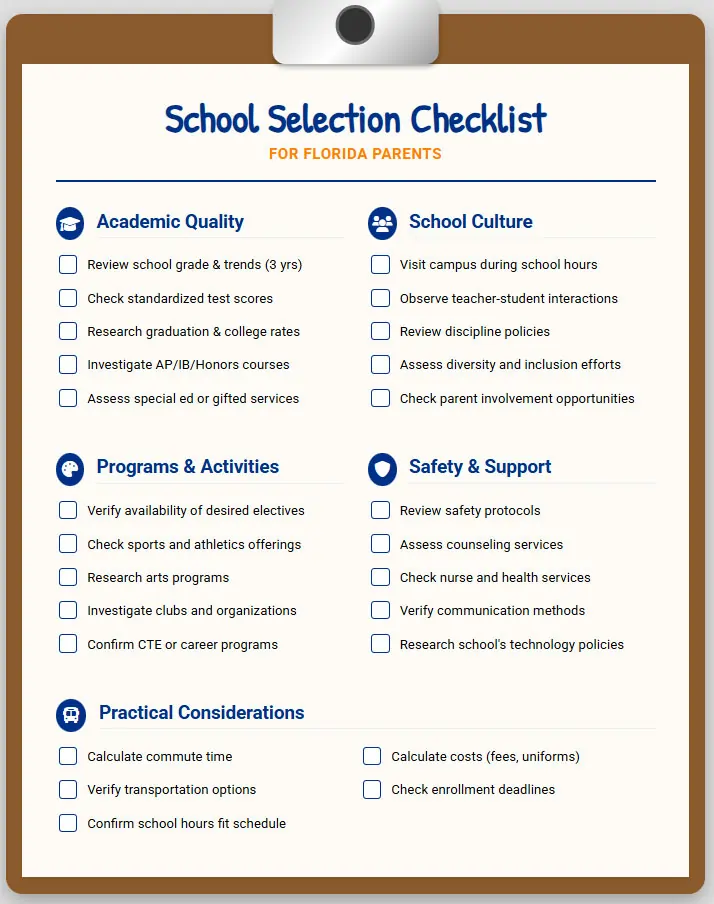
Talk With Current Parents and Students
Current families give you information that you won’t discover in official materials. Inquire about:
- The quality of teachers and how often they leave
- How well the government listens to issues
- Real homework loads and school stress
- How good the extracurricular programs are
- How the school talks to parents
- How happy people are with the education they get
Understand Enrollment Processes
Different kinds of schools offer different ways for students to sign up:
Public Schools: For the most part, pupils who live in attendance zones are automatically enrolled. You may need to apply to choice programs.
Charter Schools: When there are more applications than spaces, they often adopt a lottery system. If you can, apply to more than one school and do so early.
Private Schools: Usually need you to apply, interview, take tests, and plan ahead. At least a year before you want to enroll, start the process.
Questions and Answers About Florida Schools
Q: What is Florida’s system for grading schools?
A: Florida gives schools letter grades from A to F based on a number of things, such as how well children do on state tests, how much they learn (particularly for students who aren’t doing well), how quickly they get to middle school, how many students graduate (for high schools), and how ready they are for college and a career. The grading system makes it easy for parents to see how well their child is doing in school, but they should look at the full report cards for all the information.
Q: Are charter schools in Florida really free?
A: Yes, charter schools are public institutions that don’t charge tuition. Like regular public schools, they get money from taxpayers. They can ask for voluntary donations or make families buy uniforms or school materials, though.
Q: What kinds of scholarships are there for private schools?
A: Florida has a number of scholarship programs, such as the Florida Tax Credit Scholarship (for families with low incomes), the Family Empowerment Scholarship (for different qualifying situations), the Hope Scholarship (for students who are bullied), and the Gardiner Scholarship (for students with special needs). Requirements for eligibility differ from program to program.
Q: Can we go to a public school that isn’t in our neighborhood?
A: Many districts have controlled open enrollment or choice programs that let kids apply to schools outside of their designated zone, as long as there is room. Anyone who lives in the district can go to a charter school, no matter where they live. Different districts have different rules and procedures.
Q: How can I tell whether my child is eligible for gifted programs?
A: Florida law says that school systems must find and help gifted students. Testing, teacher recommendations, and a review of academic performance are all things that are usually part of the evaluation process. Parents might ask their child’s school to do an evaluation.
Q: What makes magnet schools different from charter schools?
A: Magnet schools are public schools run by school districts that focus on a certain subject and often have a competitive admissions process. Charter schools are public schools that are run by their own governing bodies. Both have specialized curriculum, but magnet schools are still run by the district.
Q: Does my child have to live in Florida to go to school there?
A: Yes, students must live in Florida to go to public schools without paying tuition. When you sign up, you need to show proof of where you live. Private schools might let students from other states in, but they usually charge more for tuition.
Q: What can I do if my child is being bullied?
A: Florida schools need to have rules and ways for students to report bullying. The first thing you should do is get in touch with your child’s teacher and school counselor. If things don’t get better, talk to the administrators. The Hope Scholarship program lets students who are being bullied move to other schools, even private ones.
Q: What is Florida’s VPK (Voluntary Prekindergarten) program?
A: The VPK program in Florida gives free prekindergarten to all 4-year-olds. Parents can pick between private providers who are taking part and public schools. The program gets kids ready for kindergarten by giving them a curriculum that is right for their age and testing their growth.
Conclusion and Other Resources
Florida’s schools provide amazing chances for children and families who are prepared to put some consideration into the process of choosing a school. With 1,908 schools getting better grades or keeping their A in 2025, Florida’s education is still getting better.
To pick the best school for your child, you need to know what they need, look into all the alternatives, and get involved in the school community after they are enrolled. Keep in mind that the “best” school isn’t always the one with the greatest ratings. It’s the one that meets your child’s intellectual, social, and emotional needs the best.
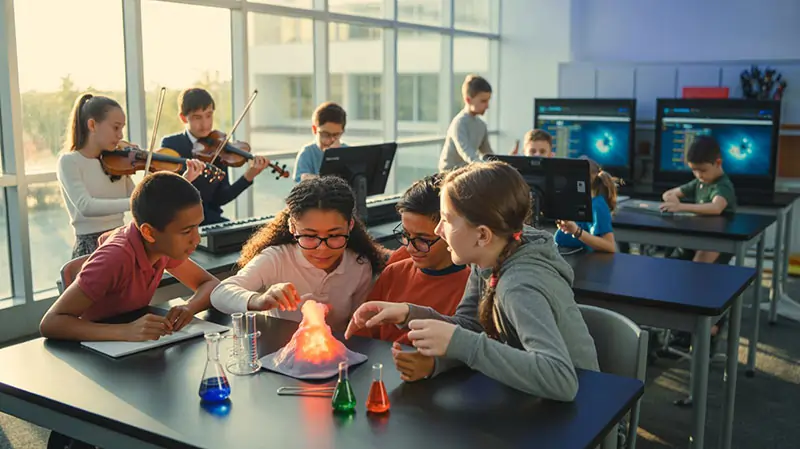
Important Resources for Parents in Florida
Official Florida Department of Education Resources:
- Florida School Grades & Report Cards: www.fldoe.org – Search for individual school performance data
- Charter School Information: Complete directory of Florida charter schools with contact information
- Scholarship Information: Details on all available scholarship programs including eligibility requirements
- Special Education Resources: Rights, services, and advocacy information
School Choice Resources:
- GreatSchools.org – Independent school ratings and parent reviews
- Niche.com – Comprehensive school rankings and community information
- SchoolDigger.com – Florida school rankings with detailed data analysis
District Websites:
- Miami-Dade County Public Schools: www.dadeschools.net
- Orange County Public Schools: www.ocps.net
- Hillsborough County Public Schools: www.sdhc.k12.fl.us
- Pinellas County Schools: www.pcsb.org
- Seminole County Public Schools: www.scps.k12.fl.us
Parent Advocacy Organizations:
- Florida PTA: Resources for parent involvement and advocacy
- Families for Strong Public Schools: Information and support for public education
- Step Up For Students: Scholarship administration and school choice guidance
Stay Informed
With new programs, regulations, and chances, Florida’s education system is changing.Stay in touch by:
- The ways your school district talks to people
- Meetings of the local PTA/PTO
- Meetings of the school board that anybody can attend
- Updates on education news from trustworthy sources
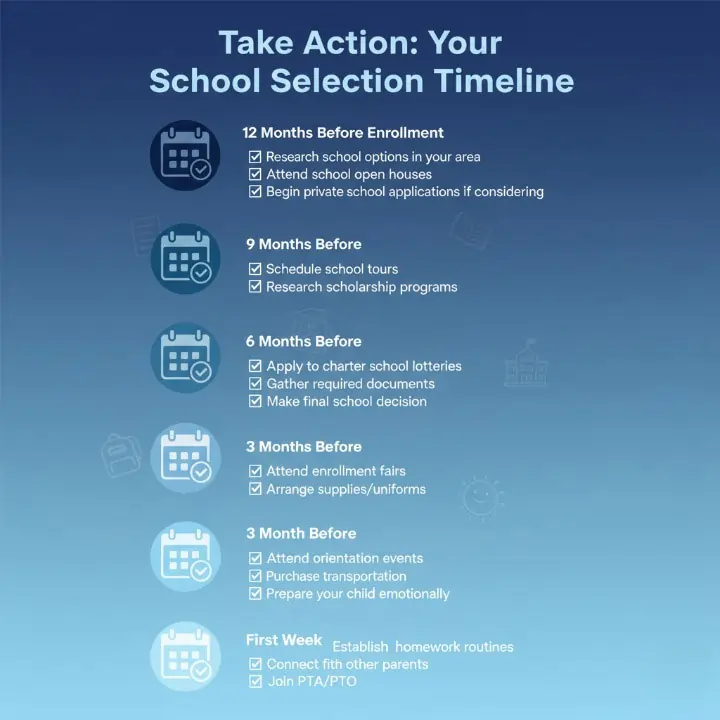
The time and money you put into finding the perfect school for your child will pay off throughout their schooling. Florida schools provide world-class opportunities; the trick is to locate the right one for your family. Florida families have never had better choices for a good education. Schools are doing better all around the state, there are more resources to help, and there are more possibilities. Keep in mind that you are your child’s best advocate. Stay active, talk to teachers and administrators, and have high standards for your child’s education. Families and schools can work together to make sure that every student in Florida gets the great education they deserve.

